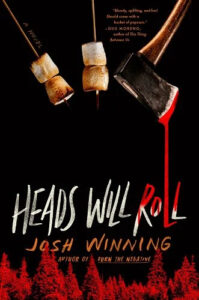When Shannen Doherty died on July 13, 2024, it made sense. It was absurd, as I would not be in the same room with him.
The article continues after the ad
Was it some kind of parasocial response? Did I mistakenly think of him as a friend, just because I liked watching him kick ass Charmed and listening to him speak his truth on a podcast while I’m taking long walks in my hometown? Was it an emotional displacement? Was I taking out my grief over the death of someone I knew and loved so much on a TV star?
The answer, I think, is probably all of the above. And that’s okay. Must be common. It’s all part of the power of Hollywood. Thanks to the advent of screen entertainment, TV and film actors touch our lives in powerful, mysterious ways that transcend time and space. They come across great distances to lay a hand on our shoulders. Comforting. Interesting. To encourage and comfort
What I find interesting is the natural separation. There is always a screen between us and the celebrities we love. Just as we feel we know famous people, we only know them through their work. That’s why we watch interviews, read articles, listen to podcasts, and watch movies and TV shows endlessly—we want to learn more about the people who inspire us.
As a horror writer, I have chosen this idea over three books (so far). My first one, Shadow Glasswas inspired by reports that Jim Henson was depressed during his 1986 film Labyrinth (aka the best movie of all time) went viral when it was released. I couldn’t help but wonder what that looked like behind the scenes, and how it affected his relationships in real life. My second novel, Burn the Negativeexplored the allure of the “cursed film” myth and what those myths meant to the people involved.
My latest book, Heads Will Drip, took its cue from the “culture erasure,” which was the latest Hollywood blockbuster. While “call out culture” movements such as MeToo and BLM demand redress for criminal acts and harassment, “call out culture” includes online attacks on a person’s identity based on their performance of public affairs, regardless of any factual error.
During the repair Heads Will Drip By the end of 2022, it seemed like every celebrity (and even non-celebrity) on Twitter was involved in some kind of scandal, and the “trial of social media” felt dangerous, lacking in emotion and empathy. (Is it a coincidence that Doherty himself was fired when he was fired Beverly Hills 90210 and Charmed? Maybe.)
I’m not the only horror writer inspired by Hollywood life. Paul Tremblay turned to La La Land for his book Horror Movie in order to investigate the difference between fiction and reality. “For some movies that we as fans watch over and over again, we wonder what it was like while we were making the movie,” he tells me, “and there’s and a strange little part of us that wishes, even if the film is there to depict horrors, that somehow it would spill over into the blood.”
Similarly, Clay McLeod Chapman, a Hollywood screenwriter and author of The Remaking, says that we find Hollywood life amazing because it is far from ours. “Growing up, I put a lot of money into what I knew across the silver screen,” he tells me. a giving away these huge million dollar movies, the idea of making movies as this magical act… It seemed so separate from my life.”
When designers draw from real life, is there a risk of seeming like they’re stealing? Tremblay says: “If the text reads as exploitative, then it has failed as art. “Well, don’t fail like art? Easier said than done, of course. Chapman has a different opinion: “Writers have a role in their work. I know I felt that way. The Remaking, so I made a serious effort to check my involvement in the book itself. I put myself to the test throughout the book. I didn’t want to escape.”
And the scariest thing in Hollywood right now? “How often money—and people who know nothing about the story—make the final decisions about the story,” says Tremblay. “It’s a paradox as old as Hollywood.”
“Everything goes in cycles,” says Chapman, “and now we’re entering another period of stress … but man, doing anything right now feels like a miracle. And a few [of my own] potential irons in the fire now, I’m holding my breath and crossing my fingers. It’s scary for a filmmaker. ”
Even if we don’t get what Hollywood life is like, they have a way of being a part of our story. My connection with Doherty was indirect. Doherty died of cancer. My mother died of cancer in 2004, two weeks after I turned 21. One of my strongest memories is sitting at the dinner table when ‘ My mother asked me about Charmed. He wanted to know what happened to the three witches whose lives were constantly interrupted by demonic attacks. Those things were important to me, so they were important to him.
For me, Doherty’s death wasn’t just about losing an artist I loved and respected, it was about losing another connection to the past. Another connection to my mother.
That’s why I believe that Hollywood life is felt beyond the screen. That’s why they continue to inspire me creatively. See do feel separate and removed. But they also feel personality. They feel part of us. And when those lives come to an end, we should let them grieve. We allowed to be sad because of them. Because in their unique and special way, they touched us, whether they knew it or not.
***
#big #ideas #famous #people

